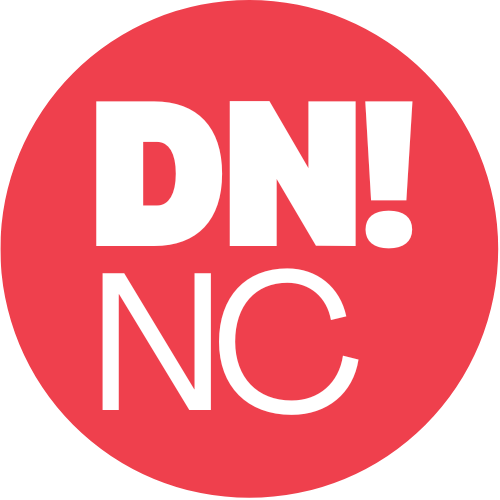Community Conversations - Clemency and Beyond
The Fair Chance Criminal Justice Project hosted a Community Conversation, Clemency and Beyond, led by Hibah Elawad, Phyllis "Grandma Hardy," Jamie T Lau, Danielle Metz, April Scales, and Richard A. Taylor.
Reframing Justice Involvement as a “Public Health Issue” instead of “Public Safety Issue”
The Fair Chance Criminal Justice Project hosted a Community Conversation, Reframing justice involvement as a “public health issue” instead of “public safety issue,” led by Abdul Hafeedh Bin Adbullah, Rebecca Cerese, and Philip Cooper.
Community Conversations - From Housing to Employment: The barriers people face when returning home
The Fair Chance Criminal Justice Project's Community Conversation, "From Housing to Employment: The barriers people face when returning home," led by Brent Bailey, Tarrah Callahan, Corey Purdie, and Lucas Vrbsky.
Community Conversations - Living Conditions and Isolation in NC Prisons
The Fair Chance Criminal Justice Project hosted a Community Conversation, "From Housing to Employment: The barriers people face when returning home" led by Brent Bailey, Tarrah Callahan, Corey Purdie, and Lucas Vrbsky.
Conversaciones Comunitarias - Las intersecciones entre los sistemas penal y de inmigración
The Fair Chance Criminal Justice Project led this Community Conversation on the Intersections between the Criminal and Immigration Systems, led by Felicia Arriaga, Stefania Arteaga, and Adriel Orozco.
Y traducido en español.
Community Conversations - The Efforts to End the War on Drugs
The Fair Chance Criminal Justice Project hosted a Community Conversation on the Efforts to End the War on Drugs, led by Brent Bailey, Andrea "Muffin" Hudson, and Daquan Peters.
Community Conversations: Profit Motives of the Prison Industrial Complex
The Fair Chance Criminal Justice Project hosted a Community Conversation on the Profit Motives of the Prison Industrial Complex, led by Felicia Arriaga, Daniel Bowes, Cierra Cobb, and Kristie Puckett Williams.
Community Conversations: the Legacy of Racism in the Carceral System
The Fair Chance Criminal Justice Project hosted a Community Conversation on the Legacy of Racism in the Carceral System, led by Quisha Mallette, Noel Nickle, Alfred Rivera, and James Williams Jr.
The Cost of Communication: NC Prisons Extort Families to Pay for Mail
“I will never again receive a postcard from Sandy with a corny pun scribbled in her shaky handwriting on the back. I will never receive a picture of Faye's daughters graduating from high school. I will never receive another newspaper article from Jack. I will never hold another letter written by a loved one and lose myself in nostalgic memories spawned by the way the paper smells and feels. I may never hear from my friends and family again.”
Inhumane Conditions at NC Department of Correction
Below is a letter from a concerned parent of an incarcerated person at the NCDOC’s Harnett Correctional Center amid COVID.
Voice From the Inside
Organizers of the Vigil for Freedom and Racial Justice received a call from someone incarcerated at the Greene County Correctional Center about the unsafe conditions they are experiencing.
Interview: Juvenile Justice with Rep. Marcia Morey
The ACLU of NC’s senior policy counsel Ann Webb met with state Representative Marcia Morey at the N.C. General Assembly to discuss juvenile justice bills at the legislature - what moved forward and what didn't, and why.
Vigil Conversation: The Extraordinary Power of Prosecutors
Jaymond Bryant-Herron and Diana Powell discussed the extraordinary power of prosecutors and their personal efforts to hold the district attorneys accountable in Cabarrus County and Wake County, respectively.
Community Conversation: Prison Conditions and COVID-19
The N.C. Justice Center hosted a virtual community conversation on prison conditions and COVID-19, and how incarceration furthers health risk for our community members on the inside.
Community Conversation: The War on Drugs
The NC Justice Center hosted a virtual community conversation on the War on Drugs. Speakers included community organizers and activists who highlighted the War on Drugs’ destructive impact on Black and brown communities and how it has been the driving force behind mass incarceration.
Vigil Conversations: the Criminalization of Immigrants
Professor of Sociology Felicia Arriaga and ACLU of NC’s senior policy counsel Ann Webb hosted a presentation at the Vigil on the criminalization of immigrants and the role of sheriffs in the prison-to-deportation pipeline.
Meet the Freedom Bus
The Freedom Bus is an old prison transport bus purchased at auction and is at the Vigil site most days. Decorated by community members with signs of solidarity, the Vigil re-appropriated the bus, which initially built to remove people from their community. It now is a tool used to recreate those connections. The Freedom Bus rides in direct defiance of the many ways the carceral state seeks to control and separate people from their communities.
#FreeHer Block Party
The National Council for Incarcerated and Formerly Incarcerated Women and Girls organized a #FreeHer Block Party on Saturday, December 11, 2021, to shed light on the need to end the incarceration of women and girls and transform the criminal legal system.
A RECAP OF THE 2021 VIGIL'S FIRST WEEK
The day before the start of the 2021 Vigil for Freedom and Racial Justice, our coalition delivered our letter to Governor Cooper explaining why we are returning to stand vigil outside the Executive Mansion. On the Vigil's first day, we participated in a community block party at Planned Parenthood’s office in Raleigh to celebrate North Carolina's progress in ending the shackling of incarcerated pregnant people and show solidarity with Mississippi communities fighting for abortion justice.
Announcing the start of the 2021 Vigil for Freedom and Racial Justice
On December 1, community partners gathered outside of the N.C. Executive Mansion to read the letter to Governor Cooper demanding executive action to decarcerate North Carolina.




















